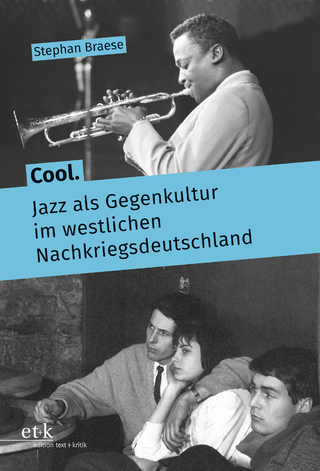
The Imagination of Experiences
Musical Invention, Collaboration, and the Making of Meanings
Seiten
2021
Routledge (Verlag)
978-0-367-56928-0 (ISBN)
Routledge (Verlag)
978-0-367-56928-0 (ISBN)
Aimed at lay, student, and academic readers alike, this book concerns the imagination, and specifically imagination in music. It opens with a discussion of the invalidity of the idea of the creative genius and the connected view that ideas originate just in the individual mind.
Aimed at lay, student, and academic readers alike, this book concerns the imagination and, specifically, imagination in music. It opens with a discussion of the invalidity of the idea of the creative genius and the connected view that ideas originate just in the individual mind. An alternative view of the imaginative process is then presented, that ideas spring from a subconscious dialogue activated by engagement in the world around. Ideas are therefore never just of our own making. This view is supported by evidence from many studies and corresponds with descriptions by artists of their experience of imagining. The third subject is how imaginations can be shared when musicians work with other artists, and the way the constraints imposed by trying to share subconscious imagining result in clearly distinct forms of joint working. The final chapter covers the use of the musical imagination in making meanings from music. The evidence is that music does not communicate meanings directly, and so composers or performers cannot be looked to as authorities on its meaning. Instead, music is commonly heard as analogous to human experience, and listeners who perceive such analogies may then imagine their own meanings from the music.
Aimed at lay, student, and academic readers alike, this book concerns the imagination and, specifically, imagination in music. It opens with a discussion of the invalidity of the idea of the creative genius and the connected view that ideas originate just in the individual mind. An alternative view of the imaginative process is then presented, that ideas spring from a subconscious dialogue activated by engagement in the world around. Ideas are therefore never just of our own making. This view is supported by evidence from many studies and corresponds with descriptions by artists of their experience of imagining. The third subject is how imaginations can be shared when musicians work with other artists, and the way the constraints imposed by trying to share subconscious imagining result in clearly distinct forms of joint working. The final chapter covers the use of the musical imagination in making meanings from music. The evidence is that music does not communicate meanings directly, and so composers or performers cannot be looked to as authorities on its meaning. Instead, music is commonly heard as analogous to human experience, and listeners who perceive such analogies may then imagine their own meanings from the music.
After a career as a geography academic, civil servant, local government officer, and political activist, Alan Taylor turned to music halfway through life and has since gained a PhD on the subject of the musical imagination. He is an active community musician, conducting two ensembles, performing in others, and directing the Herne Hill Music Festival.
Introduction
1. The redundant genius, who won’t lie down and die
2. The musical imagination as dialogue
3. Sharing imaginations
4. Making musical meanings: the imaginative listener
| Erscheinungsdatum | 05.02.2021 |
|---|---|
| Zusatzinfo | 1 Tables, black and white |
| Verlagsort | London |
| Sprache | englisch |
| Maße | 138 x 216 mm |
| Gewicht | 263 g |
| Themenwelt | Kunst / Musik / Theater ► Musik ► Musiktheorie / Musiklehre |
| Geisteswissenschaften ► Psychologie ► Allgemeine Psychologie | |
| Geisteswissenschaften ► Psychologie ► Verhaltenstherapie | |
| ISBN-10 | 0-367-56928-0 / 0367569280 |
| ISBN-13 | 978-0-367-56928-0 / 9780367569280 |
| Zustand | Neuware |
| Haben Sie eine Frage zum Produkt? |
Mehr entdecken
aus dem Bereich
aus dem Bereich
Grundbegriffe, Harmonik, Formen, Instrumente
Buch | Softcover (2021)
Philipp Reclam (Verlag)
7,80 €
Jazz als Gegenkultur im westlichen Nachkriegsdeutschland
Buch | Hardcover (2024)
edition text + kritik (Verlag)
42,00 €


